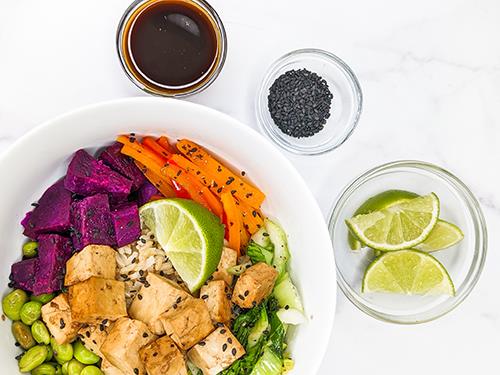Eating for your eyes: How nutrition affects eye health
Mar 9, 2020

When was the last time you considered your eye health? While most of us have heard the adage that carrots improve your vision, research has shown more significant links between nutrition and our eyes. “Your body is a life support system for the eye,” saysJeffery Adkins, MD, an ophthalmologist at Adventist Health Ukiah Valley. What you do to take care of your body also affects your eye health.
Do omega-3s help?
For a long time, experts thought that omega-3 fatty acids improved dry eye, a condition that causes burning, tearing up and sometimes blurred vision. However, a recentstudyshowed that omega-3 supplementation did not help these symptoms.
“When we look into the study deeper, researchers found that the omega-3s didn’t offer significant benefits compared to olive oil,” explains Dr. Adkins. “But both study groups improved significantly over the baseline. I recommend that people with dry eye eat as much olive oil as practical. Olive oil, unlike omega-3 supplements, also has other helpful compounds, like polyphenols.”
Choosing the right kind of oil is crucial. Dr. Adkins also recommends avocado oil for cooking, which doesn’t break down under heat as olive oil does. Ghee or coconut oil, both high in saturated fats and heat-resistant, may be used in moderation for cooking.
Oil consumption and macular degeneration
For many years, macular degeneration, a condition that causes loss of vision in the center of the field of vision, was rare. A series of studies researched the link between the consumption of artificial oils and the emergence of macular degeneration.
“We’ve gone from a very rare occurrence in the early 1900s to about one-third of patients over the age of 65 suffering from the condition,” Dr. Adkins says. “Processed oils rose in popularity in the early 1900s in the U.S., and the incidence of macular degeneration spiked about 30 years later.” Similar increases occurred in other countries, also about 30 years after the introduction of these processed oils.
Based on these observations, Dr. Adkins notes that there is enough evidence to support avoiding canola, corn, vegetable and other highly processed oils.
Research has also shown that antioxidants, zinc and copper, researched in the multicenter AREDS study, can reduce the risk of macular degeneration by about 25% in people with moderate to severe macular degeneration. There have also been notable links between reduced risk and consumption of fish and leafy green vegetables.
Improving your eye health
Research has shown that high amounts of exposure to blue light are harmful to our health in many areas. Besides suppressing melatonin and keeping us up at night, some studies have also theorized that blue light could be linked to macular degeneration.
Dr. Adkins also notes that, while some sunlight exposure is beneficial, you should be sure to protect your eyes with sunglasses in the middle of the day when the sun is brightest.
Other lifestyle choices also affect our eye health. Prioritize getting 7-9 hours of sleep per night, exercising 3-5 times per week, and managing stress in a healthy way. “Since macular degeneration has been linked to inflammation, anything you can do to reduce it will be beneficial,” Dr. Adkins says.


